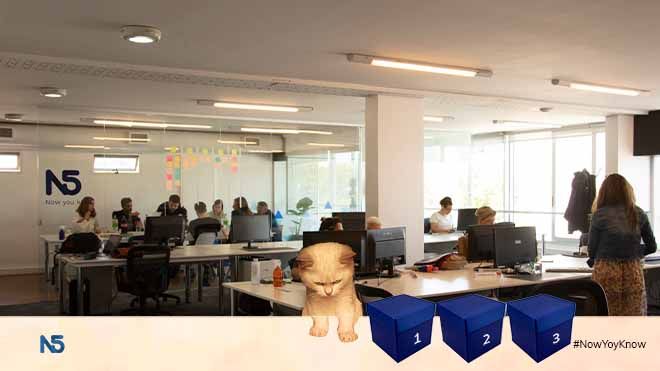“Pasenmelon” howled as he wrote with the header and the volume of “Quantum Field Theory” by Itzykson and Zuber.
About 8 Portuguese gallows (hired exclusively for the task) were subjected to her, the human resources team contributed the most difficult books from their library.
Yes, Pistacchio had not been able to digest the humiliation that his last question (see) had been correctly answered by the majority of those consulted.
Decades of successes, immediate responses and the heartbreaking message “it was easier to get bored at mass” engulfed Pistacchio in a tsunami of emotions ranging from personal frustration to claiming his critical stance before Vatican II.
Realizing that allowing him to consult the but abstruse volumes in his library would only result in extraordinarily difficult challenges, he hid all the books (we did not work last year and for weeks he told candidates to “create a perpetual motion machine in 25 minutes, and using a Toblerone wrap solo)
So let’s go with a simple and very popular challenge:
Pistacchio rigorously repeats the following routine on N5 Now, which is known to all candidates. As soon as an interview is over, display three identical boxes (but numbered 1 to 3).
One of them (Pistacchio knows which) contains a check for 100,000 dollars. The other two are empty. When a candidate chooses, say, number 1, Pistacchio says “I’m going to show you something” and immediately opens one of the two non-chosen boxes, showing that it is empty (let’s imagine it’s number 3).
He then asks the candidate: “Do you want to keep the box you had originally chosen (in this case 1) or exchange for the rest?” (in this case number 2)?

Options:
- I honestly don’t even read the problems. I like everything my CEO / client / supplier / friend publishes or photos of cats on the internet.
- You have to keep the chosen box. It is obvious that one of the other two boxes will always be empty, therefore when opening one there is no new information, and that cat does not have the best intentions.
- t does absolutely the same: When eliminating one option, the probability was 33% to 50% in each of the remaining boxes.
- I must always change my choice. If I keep mine I have 1/3 chance. If I change I have 2/3.
Answer:
This problem is just one version of the famous “Monty Hall” dilemma. There are hundreds of explanations on the internet (and permanent controversy because even eminences erred at the time the answer) but an overwhelming statistical consensus says that you should always change.
The key is in some aspects that seem trivial
- Pistacchio knows where the check is and
- He always repeats the routine of opening an empty box.
To understand very visually why changing is a good idea, let’s imagine that instead of three boxes there are 3 million boxes. The candidate chooses number 1 and Pistacchio opens ALL OTHER BOXES except 2,547,531. In that case, should the candidate keep the one he chose in the first moment (with probability 1 in 3MM) or change for the one that was closed (which we intuitively note is almost certainly the correct one)?

